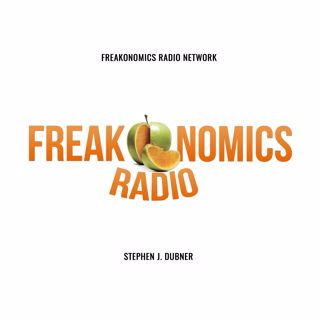Om episode
It’s hard to know whether the benefits of hiring a celebrity are worth the risk. We dig into one gruesome story of an endorsement gone wrong, and find a surprising result. SOURCES:John Cawley, professor of economics at Cornell University.Elizabeth (Zab) Johnson, executive director and senior fellow with the Wharton Neuroscience Initiative at the University of Pennsylvania.Alvin Roth, professor of economics at Stanford University. RESOURCES:"Kanye and Adidas: Money, Misconduct and the Price of Appeasement," by Megan Twohey (The New York Times, 2023)."The Role of Repugnance in Markets: How the Jared Fogle Scandal Affected Patronage of Subway," by John Cawley, Julia Eddelbuettel, Scott Cunningham, Matthew D. Eisenberg, Alan D. Mathios, and Rosemary J. Avery (NBER Working Paper, 2023)."How Celebrity Status and Gaze Direction in Ads Drive Visual Attention to Shape Consumer Decisions," by Simone D'Ambrogio, Noah Werksman, Michael L. Platt, and Elizabeth Johnson (Psychology & Marketing, 2022)."Consumer Responses to Firms’ Voluntary Disclosure of Information: Evidence from Calorie Labeling by Starbucks," by Rosemary Avery, John Cawley, Julia Eddelbuettel, Matthew D. Eisenberg, Charlie Mann, and Alan D. Mathios (NBER Working Paper, 2021)."Consumer Heterogeneity and Paid Search Effectiveness: A Large Scale Field Experiment," by Thomas Blake, Chris Nosko, and Steven Tadelis (NBER Working Paper, 2014)."The Economics of Obesity," by John Cawley (The Reporter, 2013)."Repugnance as a Constraint on Markets," by Alvin Roth (Journal of Economic Perspectives, 2007). EXTRAS:"Does Advertising Actually Work? (Part 2: Digital)," by Freakonomics Radio (2020)."Does Advertising Actually Work? (Part 1: TV)," by Freakonomics Radio (2020).

